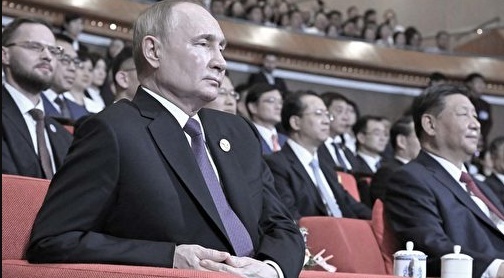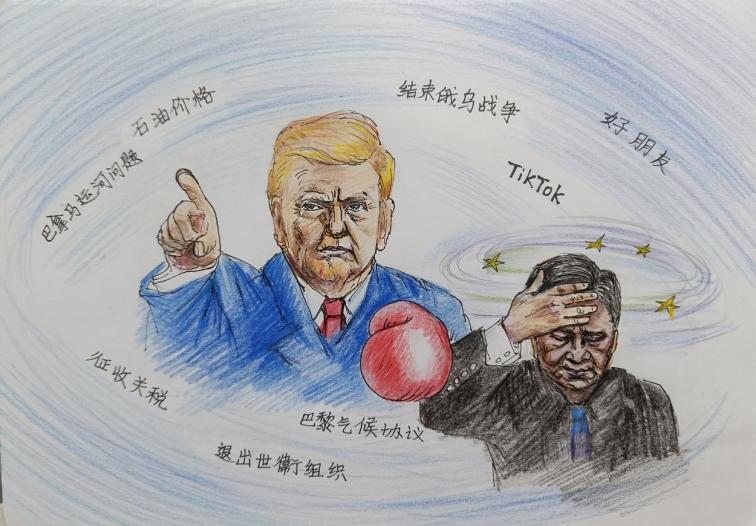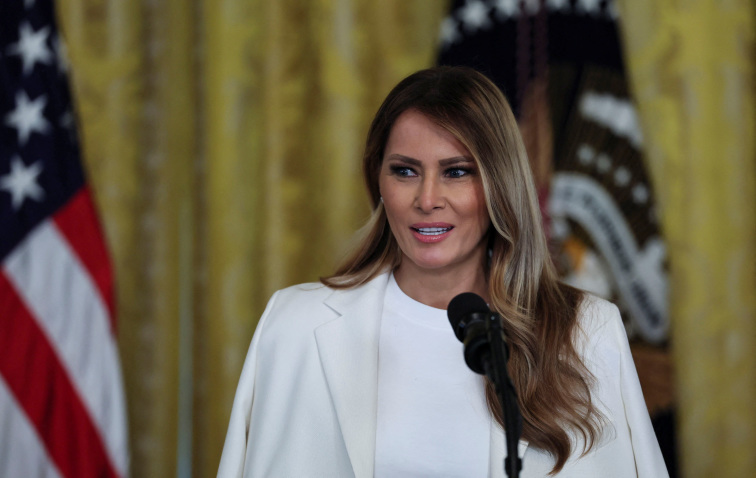Putin attended a concert in Beijing commemorating the 75th anniversary of China. (Free images)
[People News] According to the Kremlin press office, after concluding what was described as a “productive” meeting with U.S. President Trump in Alaska on August 15, Russian President Vladimir Putin returned to Moscow and immediately placed calls to several world leaders, including Belarusian President Lukashenko, Kazakh President Tokayev, Uzbek President Mirziyoyev, Indian Prime Minister Modi, Brazilian President Lula, South African President Ramaphosa, Tajik President Rahmon, and Kyrgyz President Zhaparov. In these calls, he briefed them on the meeting, and in some conversations also exchanged views on the situation in Ukraine and regional security. These leaders in turn reaffirmed support for a peaceful resolution to the Ukraine crisis and expressed willingness to maintain further communication.
Strangely, however, neither Russian nor Chinese official sources have mentioned any call from Putin to Xi Jinping.
It is worth noting that, before flying to Alaska, on August 8, Putin had proactively called both Beijing and New Delhi to brief Xi and Modi about Russia’s peace negotiations with the U.S. regarding Ukraine. Neither Beijing nor Moscow disclosed details of the conversation.
According to Chinese state media, Putin emphasized that “the Russia–China comprehensive strategic partnership of coordination will not change under any circumstances, and Russia is willing to maintain close communication with China.” Xi Jinping, for his part, outlined China’s principle-based stance, noting: “There are no simple solutions to complex problems. No matter how the situation changes, China will maintain its consistent position, continue to urge peace and talks. China welcomes Russia and the U.S. maintaining contact, improving relations, and pushing forward the political resolution of the Ukraine crisis.”
Beijing, which expressed that it “welcomes Russia and the U.S. maintaining contact,” has now witnessed the effectiveness of the Trump–Putin meeting, Moscow’s concessions, and, under Trump’s strong push, Ukrainian President Zelensky and several European leaders rushing to the White House to advance a U.S.–Russia–Ukraine trilateral dialogue and kick off the peace process. The whirlwind changes in less than a week must have left China’s top leadership with mixed feelings, but above all, anxiety.
If the war truly ends through U.S.–Russia–Ukraine talks and U.S.–Russia relations normalize, this would mean the Chinese Communist Party (CCP)—which has sought to prolong the war by supporting Russia politically, economically, and militarily—not only wasted huge sums of money, but, more importantly, will face a Trump administration free to concentrate its efforts on confronting China. On July 2, during talks with EU Vice President Valdis Dombrovskis, Chinese Foreign Minister Wang Yi openly admitted that “China does not want Russia to lose on the battlefield in Ukraine, because it fears the U.S. would then shift its focus to Beijing.” This statement revealed Beijing’s true concerns.
Now, those fears have materialized. What should the CCP do next? Especially regarding tariffs—will it continue confrontation with the U.S., “let the people eat grass,” or choose compromise and genuine reform and opening, as it often claims? Most likely, Beijing’s leadership is deeply troubled.
So why, after telling Xi that Russia “is willing to maintain close communication with China,” did Putin call so many world leaders after the summit but leave out Xi Jinping? From the perspective of diplomacy, or even considering the past personal ties between Putin and Xi, this makes little sense and is puzzling. At the very least, since U.S.–Russia relations are not yet fully normalized, Putin would still need to leverage China as a balancing factor—so it seems unlikely he would deliberately snub Beijing.
If the issue does not lie with Putin, could it be related to Xi Jinping’s health? On August 15, U.S.-based Shanghai entrepreneur and commentator Hu Liren revealed on his “Real China” channel that, late at night on August 14, three top medical experts from Shanghai were urgently summoned to the core ward of Beijing’s 301 Military Hospital to consult on Xi Jinping’s condition.
After rumors last year during the CCP’s Third Plenary Session that Xi had suffered a stroke, his subsequent appearances already showed signs of deteriorating health. Hu Liren also mentioned having once seen an unverified medical record of Xi’s, which allegedly listed multiple conditions, including senile cerebral atrophy, Parkinson’s disease, hypothyroidism, chronic heart failure, mild kidney dysfunction, hyperlipidemia, and alcoholic fatty liver disease. Although the health of the CCP’s top leader is a state secret and such records are unlikely to leak, it is highly probable that Xi’s health is poor.
If Xi suffered a medical episode during the Beidaihe meetings, was rushed to hospital, and thus could not take Putin’s call, this could explain why neither side has reported any post-summit communication between Putin and Xi.











News magazine bootstrap themes!
I like this themes, fast loading and look profesional
Thank you Carlos!
You're welcome!
Please support me with give positive rating!
Yes Sure!